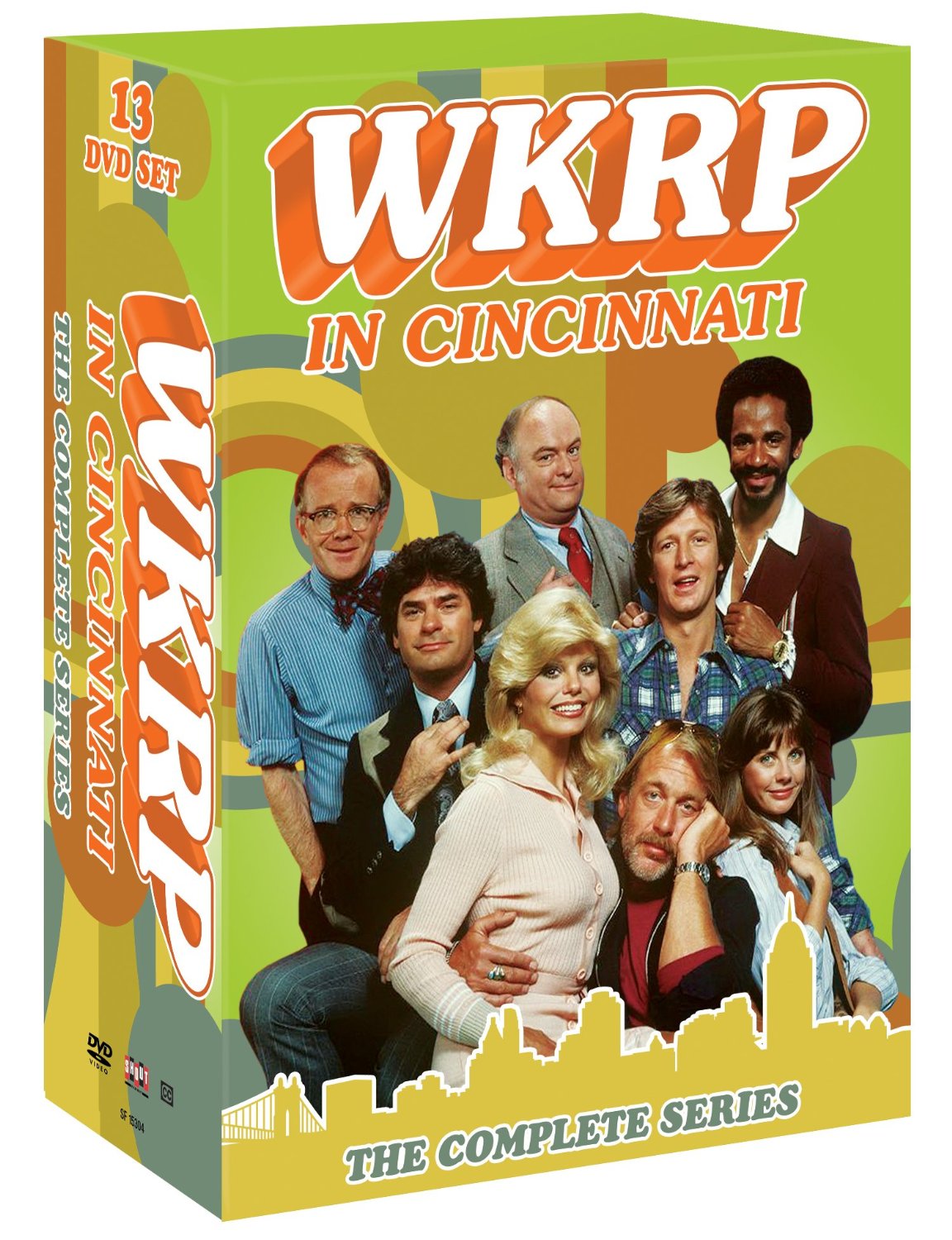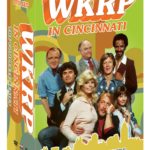
Shout Factory
Quick quiz: Name the television show that had a clip of Captain Beefheart and the Magic Band’s “Suction Prints” from the Shiny Beast (Bat Chain Puller) album cranked loud and proud during one of its episodes. That slice of rock and roll bedlam, along with bursts from artists like The Rolling Stones, Grateful Dead, Eric Clapton, Bob Marley, Paul McCartney, Tom Petty, and dozens more, not only gave WKRP in Cincinnati, a four-season sitcom about the inner-workings of a floundering mid-market radio station, a feeling of authenticity, it’s also what delayed the release of the complete series on DVD. Taking painstaking measures to restore as much as possible of the original soundtrack to the series that debuted in 1978, licensing for the original tracks took a while, but has resulted in the most inclusive and faithful representation of the comedy classic.
Now, it would be a stretch to suggest purchasing this 13-disc collection merely for the 10 or 20 seconds of music each episode, though how many times before or since has there been a TV show that has featured both Bruce Springsteen and The Sherbs? Derek and the Dominos and Detective? Beefheart alone, with ‘on-air’ recognition from Dr. Johnny Fever, is quite a coup. Not to mention the vast array of posters on walls or album sleeves in hands, everything from The Clash to Little Feat. The show’s early success led record label marketers to get wise and provide the production with such as a means of free advertising, and in turn, provides the present-day viewer nostalgic looks back alongside the entertainment. Spotting Steal Your Face while binge-watching can be half the fun.
The other half the fun, though likely more, is the show itself. Part zany, part social comment, parts Loni Anderson and Howard Hesseman, Tim Reid and Jan Smithers, with topics of Payola, amphetamine abuse, and plagiarism finding their ways into storylines as easily as flying turkeys and fighting mascots. The best example of WKRP’s ability to weave the current into the comedy came during “In Concert,” an episode that tactfully dealt with the issue of general admission seating at concerts, and the resulting real-life tragedy that occurred at The Who’s 1979 show in Cincinnati just weeks prior to the airing. It was as suitable and effective a statement on the catastrophe as anything possible, and still resonates today.
Fairly straightforward in its presentation, the seasons are contained individually in a quartet of three-disc cases. Additionally, there is a bonus disc that details some of the show’s history and development, as well as a panel discussion from 2014 reuniting most of the cast. To see WKRP in Cincinnati returned to its original magnificence is a triumph. If only the same could be done for today’s commercial radio stations.



No Comments comments associated with this post